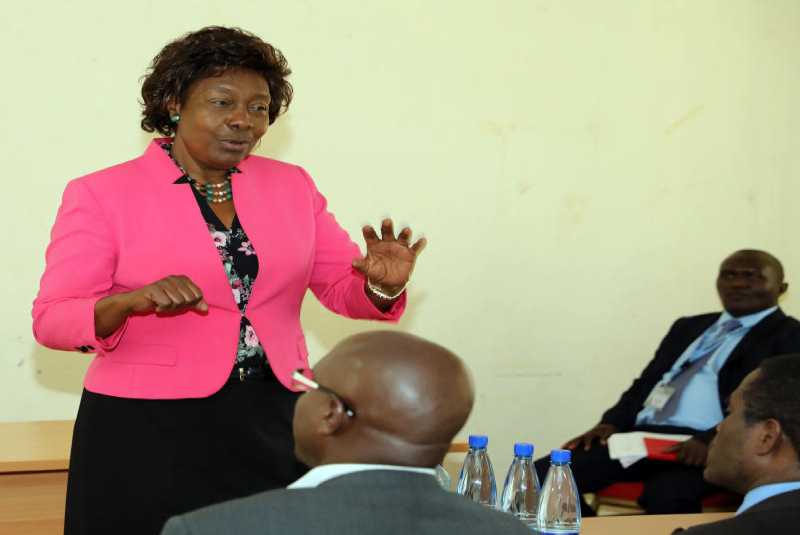×
The Standard e-Paper
Fearless, Trusted News

Kitui Governor Charity Ngilu when she met agricultural, water and livestock departmental heads at Kitui's Agricultural Training Institute on September 3, 2018. [Paul Mutua, Standard]
The governor has accused a politician in the county of inciting residents against her.